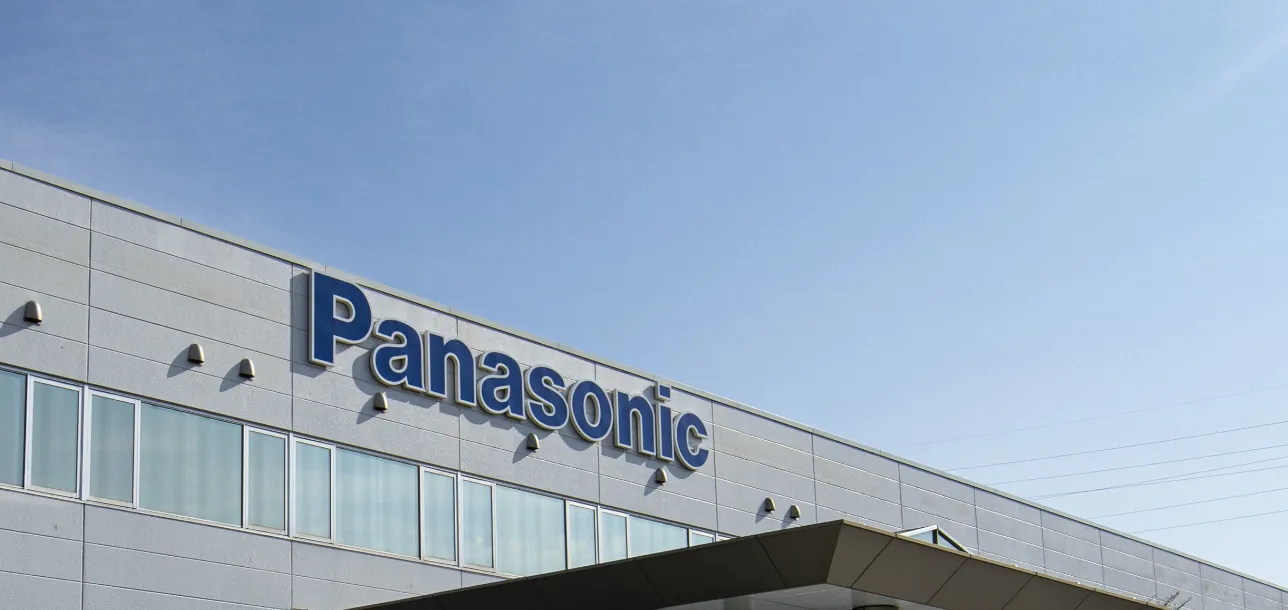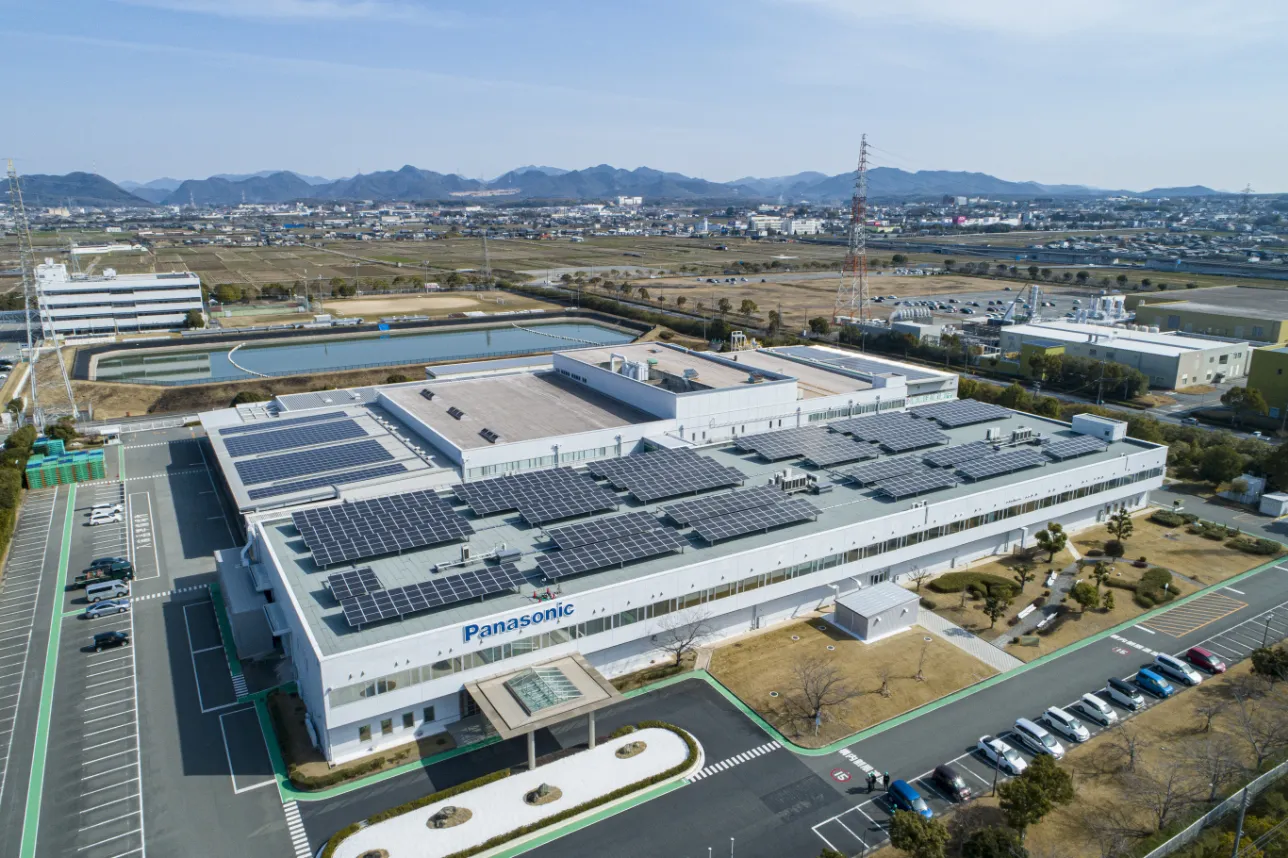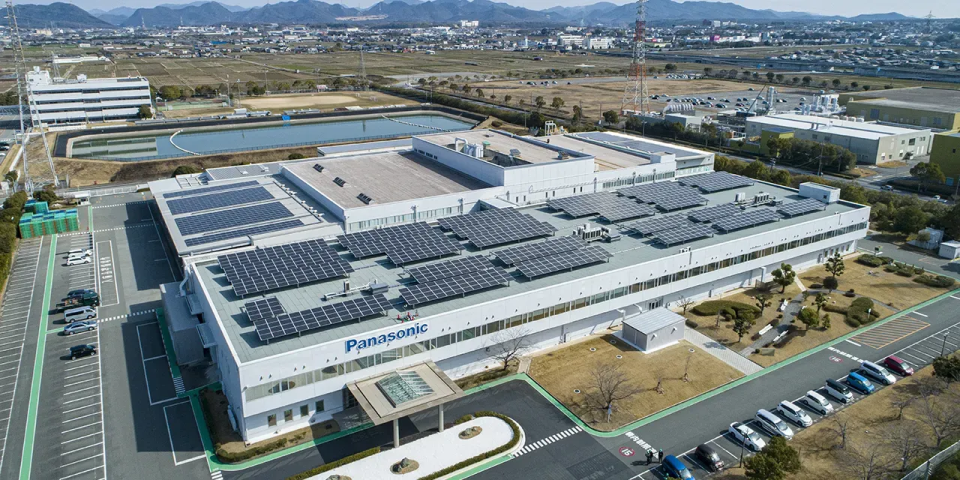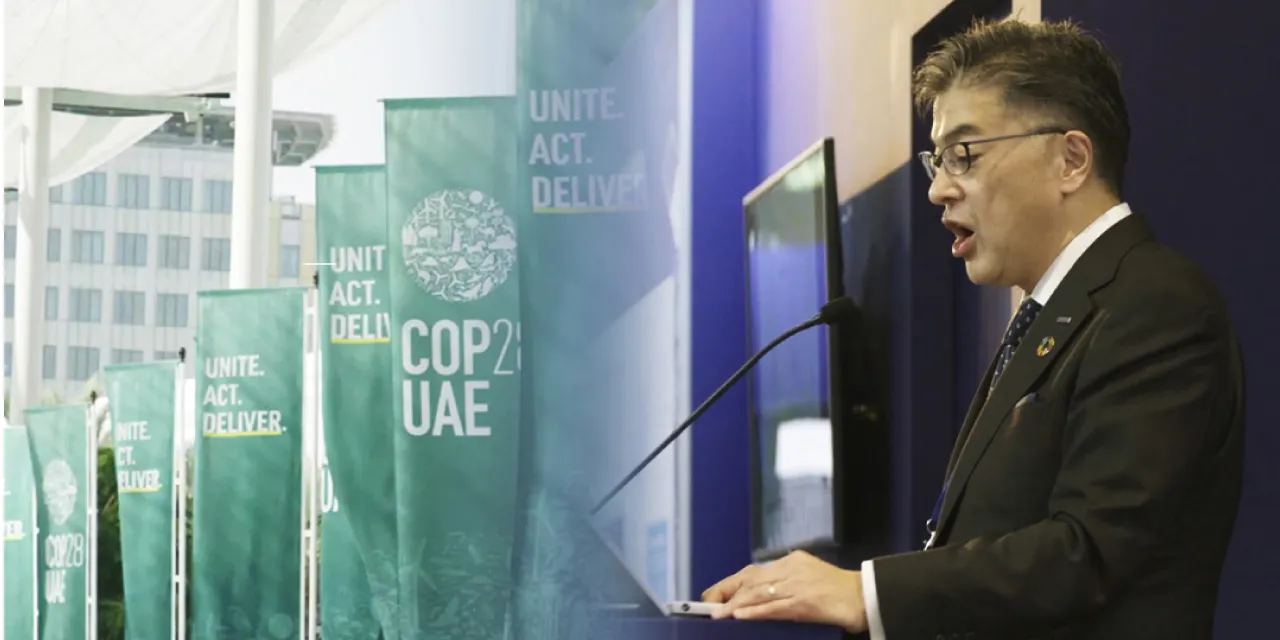Intense heatwaves. Widespread droughts and forest fires. Increasingly frequent floods. It's clear that the impacts of climate change are escalating. No doubt, you share our deep concern over these climate change phenomena.
Unless real change is made, future generations may not be able to enjoy this beautiful planet as we have. We at the Panasonic Group recognize these warning signs, and interpret them as a call to urgent action.
Our Founder's Vision of Prosperity in Both Matter and Mind
In 1932, Panasonic founder Konosuke Matsushita expressed his vision: "human happiness can be maintained and continuously improved through prosperity in both matter and mind. Lasting happiness in life can be attained only when spiritual stability is coupled with the supply of material resources." The realization of this vision, he concluded, just 14 years after the company's incorporation, was its true mission. He announced a 250-Year Plan for realizing an ideal society enjoying both material and spiritual well-being, or in other words, "prosperity in both matter and mind."
To fulfill this mission, we have been striving, to this very day, to bring people happiness and prosperity, mainly through the delivery of products and services. In developed countries, we have plenty of material goods, and most experience serious discomfort only rarely. But have we really come close to attaining "prosperity in both matter and mind?" One cannot help but feel concerned about the depletion of natural resources and wonder whether we will be able to sustain a viable global environment for future generations.
In 2022, we formulated our long-term environmental vision, Panasonic GREEN IMPACT, expressing our resolve to make a positive impact on the global environment and society. Looking ahead some 160 years to the completion of our 250-Year Plan we recognize that climate change and resource depletion are the most pressing and important social issues of our present time.

Panasonic's Responsibility: Achieving Carbon Neutrality
Through production processes at our factories, and other business activities, the Panasonic Group generates approximately 2.2 million tons of CO2 emissions per year. Moreover, our products are purchased by over 1 billion customers worldwide, and the estimated CO2 emissions generated by our products' power consumption amount to about 86 million tons per year. This is roughly 40 times the CO2 emitted from our factories. The total CO2 emissions across our entire value chain, including the above, amount to a staggering 110 million tons1 per year.
The Panasonic Group is squarely confronting this reality, and by 2030, we aim to attain net zero CO2 emissions at all Group companies. Recent years have seen an increase in the number of customers who will only buy goods produced in net zero CO2 factories. With the toughening of regulations around the world, net zero manufacturing is likely to become a requirement for business continuity. Although it is no easy task, I believe that taking the lead in net zero manufacturing will also make our company even more competitive.
Further, in order to reduce CO2 emissions throughout our organization's value chain to zero, along with our own efforts to dramatically enhance the energy-saving performance of each individual Panasonic product, society as a whole must shift from fossil fuels to renewable energy. It is also essential to provide products and solutions that help society reduce CO2 emissions without placing an undue burden on consumers, while enabling everyone to enjoy life as ever, or even more so.
In addition to promoting the transition from fossil fuels to electricity derived from renewable energy sources through our cylindrical lithium-ion automotive batteries and our heat pump water heaters, Panasonic is also promoting the use of Perovskite solar cells, which can be installed in building windows and walls, and pure hydrogen fuel cells, which generate electricity through a chemical reaction between high-purity hydrogen and atmospheric oxygen. Through our efforts to create an impact on society's use of energy by leveraging such innovative products and technologies, we aim to achieve a reduction impact of at least 300 million tons2 by 2050.
1Performance data for FY2021
2CO2 emissions coefficient based on 2020 levels

How Avoided Emissions Contributes to Societal CO2 Reduction
The term "avoided emissions" denotes the amount of CO2 emissions avoided by replacing existing products or services with advanced renewable energy technologies and energy-saving products. For instance, the reduction in CO2 emissions resulting from replacing a 10-year-old air conditioner with a newer air conditioner that consumes less power can be expressed in terms of avoided emissions.
I believe that while all companies need to strive to bring their own CO2 emissions down to net zero, those offering technologies and products which can contribute to societal CO2 reduction have a responsibility to promote their adoption. Avoided emissions provides a metric for measuring a company's contribution to addressing climate change, and if shared rules are established for its measurement, it will be possible to compare the effectiveness of efforts by various companies. I anticipate that this will foster equitable evaluation and healthy competition, driving forward society's energy transition.
What We Aimed to Convey at COP28
Currently, many companies in the electrical appliance industry share our commitment to the international standardization of avoided emissions as a metric. Moving forward, it's crucial that not only the appliance industry but also various other industrial sectors worldwide engage in emissions reduction efforts, to move forward with societal CO2 reduction. More specifically, transitioning to renewable-energy electricity sources requires efforts in Japan and around the world.
To advocate for these propositions, the Panasonic Group participated in the 28th Conference of the Parties to the United Nations Framework Convention on Climate Change (COP28). During the conference, acting on my own desire to contribute to industry-wide emissions reduction efforts and to make an impact on the stances of other companies and government agencies, I spoke at a seminar sponsored by Japan's Ministry of Economy, Trade, and Industry, and consulted government representatives, corporate leaders, and investors. I feel that this action helped the participants to reach a deeper understanding of the importance of avoided emissions. To mitigate climate change, it is important not only for countries and companies, but also for each and every one of us, as members of society, to raise our awareness and change our behavior. The Panasonic Group will continue to face its own responsibilities, expand its impact on society, and promote the creation of opportunities for everyone to take action to protect the global environment.
Another Initiative: Circular Economy
The enjoyment of our daily lives is highly dependent on the resources present on Earth. As these resources dwindle, the production of goods is compromised, leading not only to inconvenience and discomfort, but also to negative impacts on ecosystems and the escalation of international conflicts among many other negative effects. This is exactly why it is important to recycle and repurpose existing materials and foster resource recycling. However, since resource recycling poses a challenge in that it often incurs higher costs than using new materials, it is very important that we create technologies that make using recycled materials less expensive.
Recognizing that enhancing resource efficiency contributes to decarbonization, the Panasonic Group is committed to playing its part by reinforcing efforts toward a circular economy, increasing the value generated by resources and reducing the burden on the environment.

Panasonic's Resolve
Giving top priority to the urgent issues of climate change and resource depletion, the Panasonic Group will do its utmost to enable the realization of societal goals on or ahead of schedule. Our efforts will not end with achieving a reduction impact of at least 300 million tons. Although 300 million tons is a very challenging goal, it represents only about 1% of the world's total CO2 emissions3. There is only so much that can be done through the efforts of any one organization. Society as a whole needs to pull together. In order to exert a greater impact on society, we will connect with like-minded parties, pooling strengths to achieve what no single organization could.
In line with the Panasonic GREEN IMPACT initiative, we will continue to take resolute action aimed at realizing a decarbonized society.
32020 energy-derived CO2 emissions (Source: IEA)
Panasonic Group CEO Yuki Kusumi
Due to the increase in CO2, Earth is the hottest it has been in 1,400 years, and climate change is accelerating.
CEO Kusumi shares the Panasonic Group's resolve regarding Panasonic GREEN IMPACT.
The Panasonic Group aims to create impact that reduces CO2 emissions by at least 300 million tons by 2050.
Carbon Neutrality
Circular Economy






